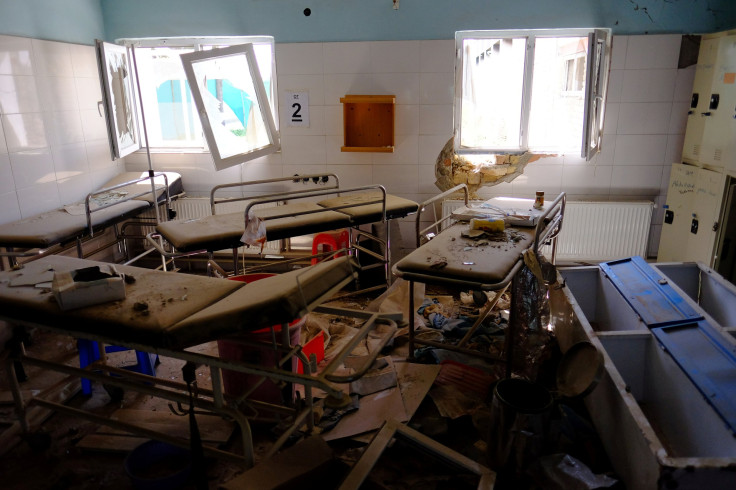Medical Aid Group Pulls Out Of 'Fig-Leaf' U.N. Humanitarian Summit

Médecins Sans Frontières is pulling out of the first ever World Humanitarian Summit, saying the U.N.-sponsored meeting will not hold states to account for their role in conflicts or pressure them to abide by the laws of war.
The May 23-24 gathering in Istanbul represents a missed opportunity in that it will only voluntary commitments from governments and aid agencies to improve emergency response and reduce humanitarian needs, MSF said on Thursday.
"We no longer have any hope that the World Humanitarian Summit will address the weaknesses in humanitarian action and emergency response, particularly in conflict areas or epidemic situations," said the international medical charity, also known as Doctors Without Borders.
"The summit neglects to reinforce the obligations of states to uphold and implement the humanitarian and refugee laws which they have signed up to," it said in a statement.
On Tuesday, MSF slammed four of the five permanent members of the United Nations Security Council for ties to attacks on hospitals in Syria, Yemen and Afghanistan as the council demanded an end to such strikes.
Sandrine Tiller, MSF UK program advisor on humanitarian issues, said U.N. organizers of the summit had "let states off the hook" by asking only that they make non-binding commitments, putting them on the same level as less powerful non-governmental organizations and U.N. agencies.
"As shocking violations of international humanitarian law and refugee rights continue on a daily basis ... participants will be pressed to a consensus on non-specific, good intentions to 'uphold norms' and 'end needs'," the MSF statement said.
"The summit has become a fig-leaf of good intentions, allowing these systematic violations, by states above all, to be ignored."
Herve Verhoosel, spokesman for the World Humanitarian Summit, which is led by the U.N. Office for the Coordination of Humanitarian Affairs (OCHA), said MSF's decision was "disappointing".
The summit is an opportunity to call for greater political will to prevent and end conflict, push for International Humanitarian Law to be implemented, protect civilians and health workers, and gain unimpeded humanitarian access, he said.
"These are all vital subjects on which MSF traditionally presents a strong and influential voice," he added.
GOVERNMENTS STAYING AWAY?
The withdrawal of MSF, which took part in extensive consultations leading up to the summit, adds to doubts about the meeting's impact.
Questions have been raised about the level of government interest. Earlier this week, the head of OCHA, Stephen O'Brien, told media 80 countries out of around 195 U.N. member states had said they would participate so far, with 45 of those sending heads of government.
Verhoosel said the number of countries attending is rising daily, with an expectation it will reach around 120.
MSF's Tiller told the Thomson Reuters Foundation the summit had been organized in "quite a shambolic way". She said it was putting too much emphasis on how to reduce aid needs through longer-term solutions rather than dealing better with urgent crises, such as the millions displaced by the war in Syria.
There was a sense that the humanitarian summit "is looking in the other direction, towards development issues, and not focusing on the real emergencies on the doorstep", she added.
Christina Bennett, a research fellow with the London-based Overseas Development Institute, said MSF's no-show at the summit should act as a catalyst for other humanitarian groups to push for stronger commitments from states to respect the laws of war, as well as other reforms they want to see.
There should also be a clear process for making sure promises made at the conference are kept, Bennett said.
"Hope is not a strategy," she added.
(Reporting by Megan Rowling; editing by Katie Nguyen. Please credit the Thomson Reuters Foundation, the charitable arm of Thomson Reuters, that covers humanitarian news, women's rights, trafficking, corruption and climate change. Visit http://news.trust.org)
Published by Medicaldaily.com



























